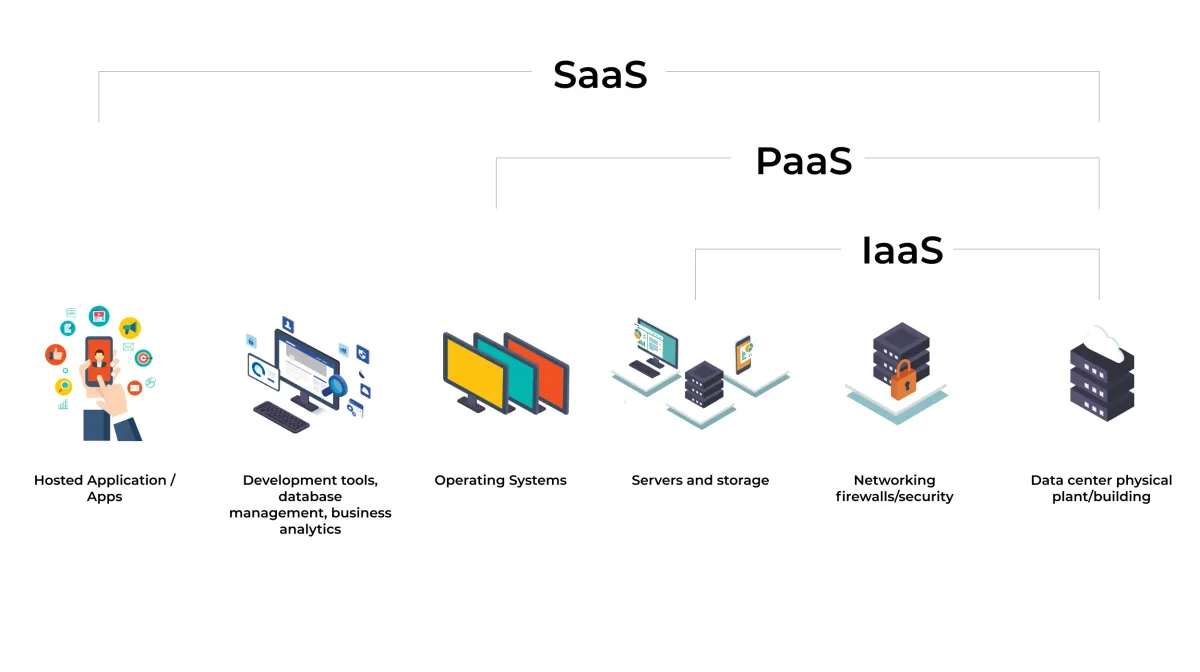How to distinguish SaaS from PaaS vs IaaS

If you’ve ever sat in a board meeting where someone tosses around SaaS, PaaS and IaaS as if everyone knows exactly what they mean and you weren’t completely sure what the difference was - this one’s for you. I’ll walk you through all three, and make sure you leave knowing not just what they are, but why it matters for your business or team.
The simple definitions – and how I see them
Let’s start with what each term means.
Software as a Service (SaaS): This is ready-to-use software delivered over the internet. You sign up, you log in, you use it. The vendor handles pretty much everything behind it.
Platform as a Service (PaaS): Think of this as a cloud environment or toolkit where you build and deploy your applications, but you don’t manage the underlying hardware or basic platform. You plug your code into someone else’s platform.
Infrastructure as a Service (IaaS): This is the rawest level of cloud service virtual servers, storage, networking. You rent the infrastructure, and you’re responsible for more of the stack (operating system, middleware, apps).
What control vs convenience looks like when choosing the right software
If you go SaaS, you’re choosing convenience. The vendor handles updates, scaling, infrastructure. You just use the tool. But you trade away some control. (For example: you may be limited in how much you can customise the software.)
If you go IaaS, you have maximum flexibility and control - but also maximum responsibility (you manage a lot more of the stack). PaaS hits a sweet-spot in many cases: you still build your apps, but you don’t have to worry about managing servers, OS patches, etc.
Who on your team can/should do what
For SaaS – if your business is more about operations, service, using software, and less about building software, SaaS often wins.
For PaaS – if you have a dev team that is building custom apps, workflows, internal tools, you may benefit from PaaS because you don’t want to reinvent the infrastructure.
For IaaS – if you really need full control (maybe you’re in a regulated industry or you have unique infrastructure needs) and you have skills/support for it, then IaaS may make sense.
Cost and scale trade-offs
SaaS tends to have subscription pricing and fewer hidden technical maintenance costs but you might pay more for what you don’t customise.
With PaaS, you save infrastructure overhead but you still invest in development and maintenance.
With IaaS, you might save on vendor-lock but you incur overhead on managing infrastructure, scaling, securing, etc.
My opinion – when I’d pick SaaS, PaaS or IaaS
If I’m an executive in a non-tech business (say manufacturing, retail, services) and I need tools for marketing, sales, HR – I lean SaaS. I don’t want to build or maintain software. I want fast, reliable, lower internal cost.
If I’m a director of engineering, or building a digital product (say a new app, internal portal, custom workflow) – I lean PaaS. I want to build something that differentiates us, but don’t want to start from zero.
If I’m a CTO in a large scale tech company, or I have unique infrastructure requirements (very high performance, very custom environment, compliance/regulation) – I lean IaaS (or at least mixed). But I’ll need to account for team capability, risk, cost.
Beware hybrid or mixed strategy: Many companies say "we’re using SaaS" but actually they’re sitting on a PaaS or IaaS foundation and have dev teams managing things. It’s OK but your cost, skills and governance must reflect the reality.
Thank you for reading - Arjus




